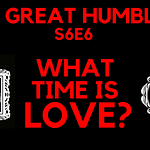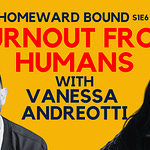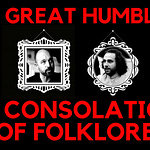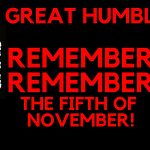In this episode we explore the framing of a potential 'language of longing', beginning with the usual reviews of our recent relevant reading: 'Eco-Anxiety' by Anouschka Grose (which explores pertinent themes: anxiety, trauma, grief, immortality systems and death denial - as well as their counter-points joy, wonder, awe, imagination, wild generosity and radical friendliness) for Ed, as well as Martin Shaw's forthcoming book 'All Those Barbarians' - the 'grimoire' of the School of Myth, which introduces us to the story of the Gordian Knot, and the idea of timeless and time-bound stories.
Dougald then explores a statement from the editors of degrowth.info
And this piece: ‘The Pulsation of the Commons: The Temporal Context for the Cosmo-Local Transition’ by Michel Bauwens with Jose Ramos
Which takes us into a fascinating conversation around the work of Hungarian-American Peter Pogany and the 'staccato' version of societal change that requires chaotic periods between stable interludes.
We then talk about the need for 'believing our eyes' in the sense of the rapid rewilding we can't unsee. The Venetian dolphins might not be real. But the idea of them is something we obviously desperately want to believe.
Dougald then introduces Ivan Illich's ideas around 'conviviality', which we combine with Julia Watson's 'Lo-Tek: Radical Indigenism' and the Gesturing Towards Decolonial Futures collective which asks how we might be ‘hospicing modernity and assisting with the birth of something new, undefined and potentially, but not necessarily, wiser’.
Or what Jay Cousins calls ‘Upcycling the system looks both among the rubble and the not-yet-fallen towers, and then takes what it needs to leverage a kinder future’
We then return to Michel Bauwens and Pogany – asking how we might stabilise at a new level, a humbler level based on a way of approaching the world that is not characterised by exploitation and extraction – as Vanessa Andreotti would say, ‘in as-yet-unimaginable futures’
We conclude with thoughts on one of our first discussions - the challenge of articulation? This is why storytelling is often powerful, as Martin Shaw always says ‘a wild way of telling the truth’...
To not be sucked into the ‘economy-speak’ (as we almost were in Episode 2 perhaps?) but to stay true to the articulations that touch a different part of us - perhaps the heart?
That’s maybe the difference between what Anouschka Grose calls ‘Solastalgia’ - finding discomfort where you used to find comfort (Latin ‘Solacium’ = comfort, Greek ‘Algia’ = pain) and Joanna Macy’s ‘radical hope’?
Thanks for listening. Do follow us and get in touch via our Facebook page.











